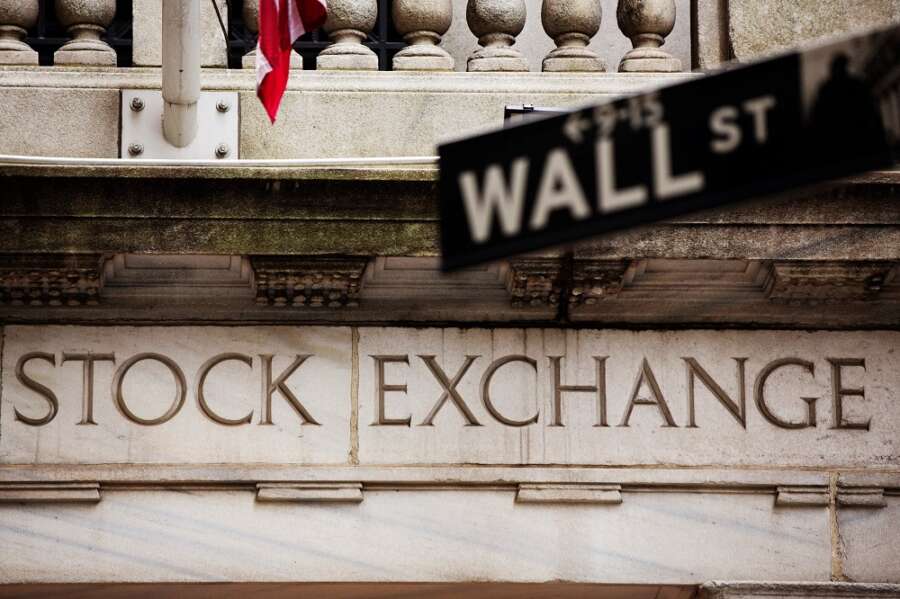
NEW YORK (Reuters) -Wall Street dipped on Friday as investors neared the finish line of a week marked with mixed earnings, warnings of possible further rate hikes from the Federal Reserve, and worries of escalation of the Middle East conflict.
The yield on 10-year U.S. Treasury notes briefly crossed the 5% barrier late Thursday for the first time since July 2007, and is on course for its largest weekly surge since April 2022, powered by solid economic data.
All three major U.S. stock indexes were lower in early trading, with interest-rate-sensitive tech and tech-related megacaps pulling the Nasdaq down most.
All three indexes appeared set to notch week-on-week losses.
“(Investors are) digesting comments from (Federal Reserve) Chairman Powell and putting them into context with remarks of other Fed speakers who have suggested that the move upward in Treasury yields is helping the Fed tighten conditions,” said Tom Hainlin, national investment strategist at U.S. Bank Wealth Management in Minneapolis. “And perhaps there’s lower probability that the Fed will have to raise interest rates further.”
Strong U.S. retail sales in September reinforced ideas that the Fed may need to keep interest rates high for longer, Hainlin said.
Third-quarter earnings season has hit full stride, with 86 companies in the S&P 500 having reported. Of those, 78% have delivered results above expectations, according to LSEG.
Geopolitical tensions dampened investor risk appetite as Israel leveled a northern Gaza district.
The Dow Jones Industrial Average fell 175.13 points, or 0.52%, to 33,239.04, the S&P 500 lost 42.15 points, or 0.99%, to 4,235.85 and the Nasdaq Composite dropped 183.29 points, or 1.39%, to 13,002.89.
European shares extended their sell-off, and were on a path to their largest weekly percentage drop in three months as mounting tensions in the Middle East, climbing interest rates and disappointing earnings dampened investor risk appetite.
The pan-European STOXX 600 index lost 1.16% and MSCI’s gauge of stocks across the globe shed 0.89%.
Emerging market stocks lost 0.52%. MSCI’s broadest index of Asia-Pacific shares outside Japan closed 0.58% lower, while Japan’s Nikkei lost 0.54%.
The yield on U.S. 10-year Treasury notes, the bedrock of the global financial system, appeared to take a pause at but remained on track to nab its biggest weekly gain in over a year as robust economic data continues to defy the Fed’s restrictive policy rates.
Benchmark 10-year notes last rose 17/32 in price to yield 4.9179%, from 4.988% late on Thursday.
The 30-year bond last rose 8/32 in price to yield 5.0836%, from 5.102% late on Thursday.
The dollar briefly touched the closely-watched 150 level against the Japanese yen on Friday, boosted by rising Treasury yields and Federal Reserve Chairman Powell hinted at the possibility of additional policy rate hikes.
The greenback was essentially flat against a basket of world currencies.
The dollar index fell 0.09%, with the euro up 0.09% to $1.0589.
The Japanese yen weakened 0.06% versus the greenback at 149.89 per dollar, while Sterling was last trading at $1.2147, up 0.03% on the day.
Oil continued to climb, setting course for its second straight weekly gain as the potential escalation of Israel-Hamas war stoked supply worries.
U.S. crude rose 1% to $89.25 per barrel and Brent was last at $93.25, up 0.94% on the day.
Gold extended its advance, nearing the key $2,000 per ounce level as geopolitical tensions enhanced the metal’s safe-haven appeal.
Spot gold added 0.9% to $1,990.81 an ounce.
(Reporting by Stephen Culp; Additional reporting by Marc Jones in London; Editing by Rod Nickel)


